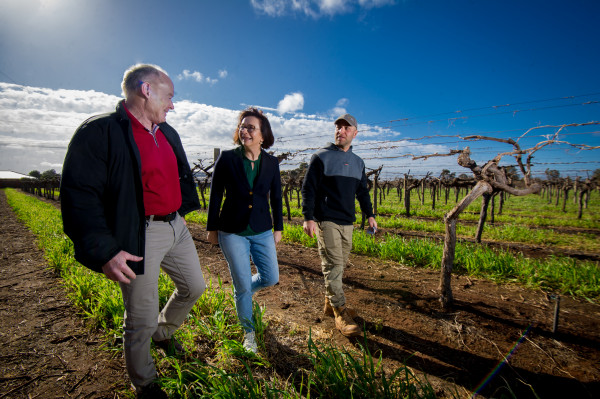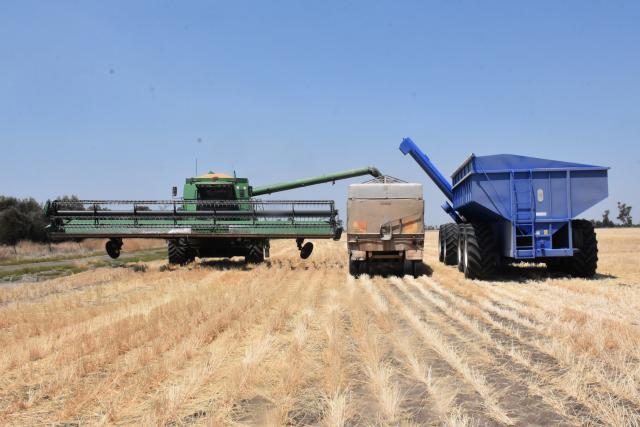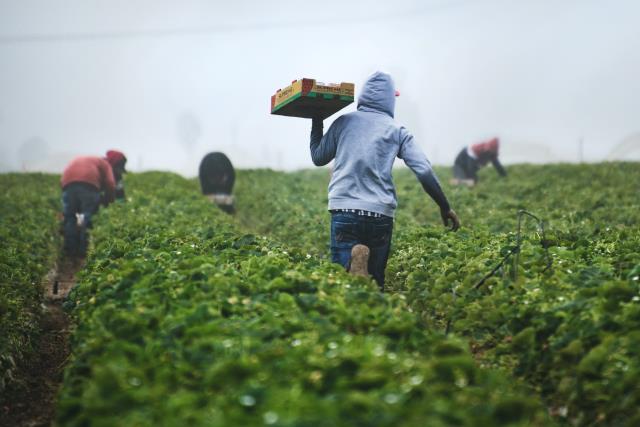SOLUTIONS ranging from more migration to an amnesty for workers already here have been flagged to address skilled labour shortages during talks in Robinvale.
The Federal Government’s Joint Standing Committee on Migration recently held a meeting in the town, discussing skilled labour shortages and migration pathways.
The committee, including Member for Mallee Anne Webster and Labor MPs Maria Vamvakinou and Cassandra Fernando, heard from Swan Hill Council and members of the table grape and stone fruit industries.
Asked to provide recommendations to the Migration, Pathway to Nation Building inquiry, council chief executive Scott Barber made several suggestions.
He said the council wanted an increase in migration, a streamlined visa process, an increase to the eligible age of workers to 50, improved pathways to permanent residency and for government to waive the three-year ban on re-entry for seasonal workers.
“I’m very confident that, if we could have people come here more regularly or move from visitor to permanency, the community would welcome it with open arms,” Mr Barber said.
“We just can’t get enough people in to supply the current industry demands.”
The council noted the impending creation of about 500 jobs in and adjacent to the Swan Hill municipality, through renewable energy projects, a rare earths mine and a new almond processing plant.
Swan Hill Council economic and development manager Dennis Hovenden told the inquiry there was ample opportunity for employment, but housing remained an issue.
“If the inquiry can do anything to streamline the process and the time taken to actually go through and attract migrants, I think it would be a very positive thing,” Mr Hovenden said.
“We have a historical background of inviting and welcoming people to our nation, and I think we should do everything in our power to actually streamline the process, not make it difficult.”
Robinvale & District Table Grape Growers Association president Don Albanese said red tape was a pervasive issue, particularly with visas and the supply of on-farm accommodation.
“There needs to be some sort of leniency in providing accommodation for these workers,” Mr Albanese said.
“We need certainty in (bridging and protection) visas … maybe an increase in the length of time a visa is valid.”
Australian Table Grape Association chief executive Jeff Scott told the inquiry more should be done to provide permanency pathways.
He pitched a pilot program to engage 500 or more agricultural students from Asian countries to go to selected farms in Sunraysia, to both study at SuniTAFE and work on farms.
“While they’re here, why not skill them? Why not upskill them so that they potentially will gain a recognised qualification and potentially lead to permanent residency,” Mr Scott asked.
A solution flagged by Dr Webster was whether there should be an amnesty for long-time Robinvale residents who have illegal worker status, and are living with expired or invalid visas.
Mr Barber said they’d need to get through the devil in the detail.
“If the bugs are ironed out of the system … council would support that and we would partner with the Federal Government to make something happen,” he said.
Cutri Fruit managing director Gaethan Cutri gave a more colourful recommendation.
“The easiest way to get skilled labour is to just give a bloody amnesty. They’re already here,” Mr Cutri said.
“It’s not going to solve everything. (But) it’s going to help a lot.”
A further hearing for the Migration, Pathway to Nation Building inquiry will be held in Canberra on Friday.
















